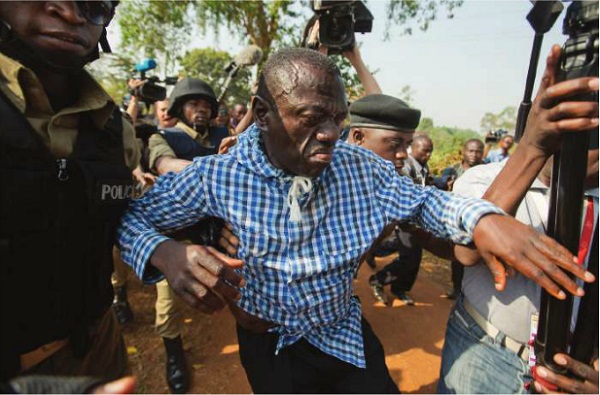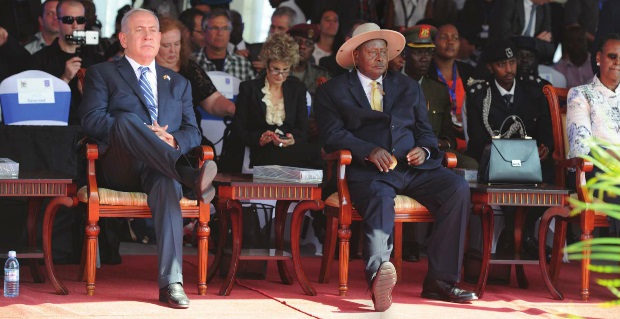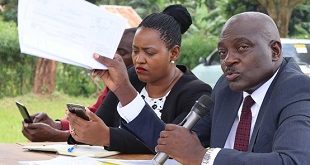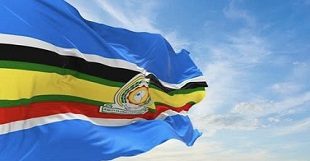
JUNE:
Attacks on security installations:
Talk of a coup following attacks at security installations marked the better of June. Uganda police and the army were forced to mount a joint operation and deal with the attacks that had put the country on high security alert and were fueling the talk of an attempted coup.
In one of the incidents, police with the army from the 4th Division, repulsed attackers who targeted a police station in the northern Uganda town of Gulu. A group, calling itself the National Democratic Alliance (NDA), claimed that it was responsible for the raid.
Dan Oola, Uganda people’s Congress party’s National Deputy Secretary for Mobilization, UPDF’s Colonel Dan Opit Odwee, the airforce garrison commander, other officers and Micheal Kabaziguruka, the Nakawa legislator, was amongst those arrested and detained over subversive activities.
Makindye shooting:
A soldier, Sgt Obua Isaac, shot dead seven people inside Makindye Military barracks before he was also killed. Atleast six soldiers’ wives including one child were confirmed dead in the incident, which Army spokesman, Lt. Col. Paddy Ankunda, described the incident as “sad”. Obua was working as a laboratory technician in the barracks.
Besigye in detention:
Defacto opposition leader, Kizza Besigye remained under detention at Luzira prison over the treason charges. Prosecution alleged that Besigye and others at large between February 20 and May 11 2016 intended to force government to change the lawfully established methods of acceding to the office of the president.
State prosecutors had wanted Besigye’s case to be handled at a Luzira Court citing security threats and the state had refused to produce Besigye in court. But Chief Magistrate James Ereemye Kabanda issued the warrant to compel prison officers to present Besigye, before court on June 15 for mention of his case. Besigye applied for bail on June.7
As the Finance Minister Matia Kasaija read the budget the following day, legislators interrupted him calling for Besigye’s release. While responding to the calls that day, President Museveni said he couldn’t influence Besigye’s release. The opposition leader who was arrested on May.17, would not be released until July.
JULY:
Businesses want government bailout
July 15: The Independent magazine, under the headline “Fight over Museveni’s business bailout money” (Issue 427) reported what was possibly the biggest story of 2016 – the proposal and counter-proposal to bail out over 100 distressed businesses. They were said to be up to their neck in debt and were on the verge of losing their assets to commercial banks which had lent them money. The proposal caused sharp disagreements as technocrats and economic experts were opposed to the idea of government expending about Shs1trillion from the public purse to save private businesses. The companies attributed their troubles to the weak economy, depreciating Shilling, slow recovery of South Sudan and high interest rates. Experts argued that bailing out companies without resolving the improving the economic situation would not solve the problem. Among the companies which were proposed to get bail outs were Patrick Bitature’s Simba Group, Roofings limited, Steel Rolling Mills, Shumuk almunium industries among others. Although government publicly denounced the proposal, there were reports that some of these companies secretly got the bail-out.

Netanyahu visits Uganda
July 04: Israel Prime Minister Benjamin Netanyahu arrived in Uganda for a four-country trip to East Africa, becoming the first Israeli prime minister to visit the continent in at least 30 years.
Netanyahu’s visit, especially to Uganda was also to commemorate 40 years after Israel’s army raided Entebbe airport to end a hostage crisis, in which his brother was killed.
“This is a deeply moving day for me,” he said. “Forty years ago they landed in the dead of night in a country led by a brutal dictator who gave refuge to terrorists. Today we landed in broad daylight in a friendly country led by a president who fights terrorists.”
Over 26,000 Sudanese influx sets single-day record
July 22: Some 26,500 South Sudanese, mostly women and children, crossed into Uganda since fighting between rival forces erupted in and around the capital, Juba, on July 07, the United Nations refugee agency reported.
An estimated 8,337 refugees crossed into Uganda on July 21, setting a single-day record since the influx began in 2016.
The new arrivals in Adjumani reported that fighting was continuing between the Sudan People’s Liberation Army (SPLA) loyal to President Salva Kiir and the SPLA in Opposition backing First Vice-President Riek Machar.
 The Independent Uganda: You get the Truth we Pay the Price
The Independent Uganda: You get the Truth we Pay the Price


